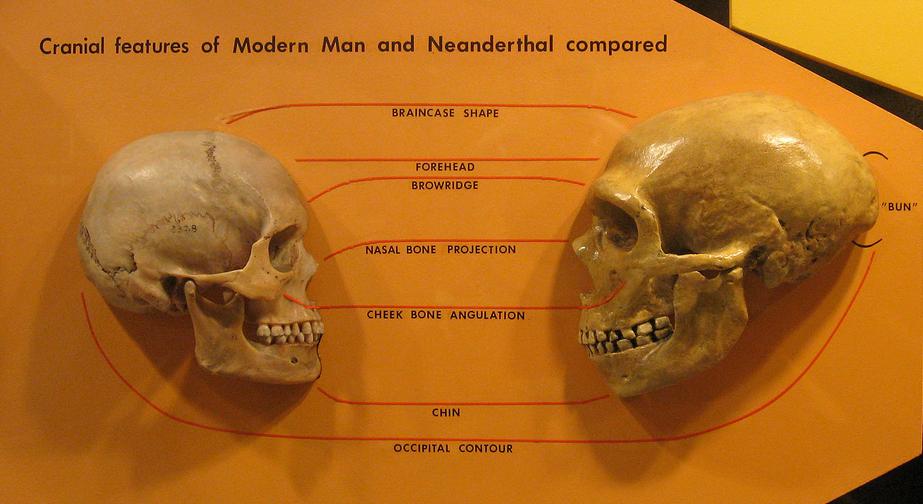

Modern people (Homo sapiens) have always found a great need to communicate about all kinds of important issues. They have very complicated language skills which enables them to discuss very complex ideas. This remarkable capability separated Homo sapiens from other human types. Their enlarged brains became store houses for enormous amounts of information spanning thousands of years. Modern people remained on one continent (Africa) for most of their life span before moving to other continents and yet they are the only humans to inhabit the entire planet. Three earlier types of humans Homo erectus, Homo heidelbergensis and Homo neanderthalensis left Africa very early. About 70,000 years ago Homo sapiens almost went extinct. Back then there were approxamately 2,000 of us left on the planet. It has been found that all humans on the planet have a certain mitochondrial DNA molecule passed on from mother to offspring. This gene can be traced back to one female ancestor of all humans (Homo sapiens). Everyone of us is a close cousin. Homo sapiens moved into other regions of the earth during the last ice age which started about 60,000 years ago and ended about 20,000 years ago. The latest find in Ethiopia show that Homo sapien is 160,000 years old which shows that Homo sapiens spent most of there life span in Africa. Modern humans spent a very long period of time as Modern Stone Age people. They have only recently adopted agriculture and civilization. The earliest civilization started about 9,000 to 10,000 years ago and Homo sapiens have been around for over 100,000 years. Question - What were we doing all that time?
Homo sapiens knew how to count, understood logic, made complicated hunting tools and could perform very simple sciences. They had not begun to farm and develop civilizations, but the necessary skills and tools to accomplish such tasks were already in place. CLC Sept. 2009 - read
"Human evolution", "BioAnthropology".

The Industrial Revolution began in England about 1750. Industrialization is less than 300 years old, such a short period of time. Before 1750, people formed apprenticeships, guilds and cottage industries. Everything was made by hand. We are now in the Information Age which is closely identified with the Digital Revolution, which has been available to a smaller public for about 45 years and for the rest of us it has been 30 years. Its electronic roots go back 150 years. New markets open up in the digital world which most of us can not see. Some of the market opportunities don't have a name yet and very few market opportunities can be seen with the necked eye. CLC Sept. 2009
There were many [scholars], [artists], [teachers], [politicians], mathematicians and scientists who contributed to [Internet] development; computers were sending signals to each other as early as the 1950s. But the Web owes much of its existence to Philip Emeagwali, a math whiz who came up with the formula for allowing a large number of computers to communicate [all] at once, [thus making it possible for the whole world to view the World Wide Web]. from Black History Month 2007 The following is a series of links to additional material - A Brief History of the Internet
|
london portalen |

| My Blog List
|
|---|